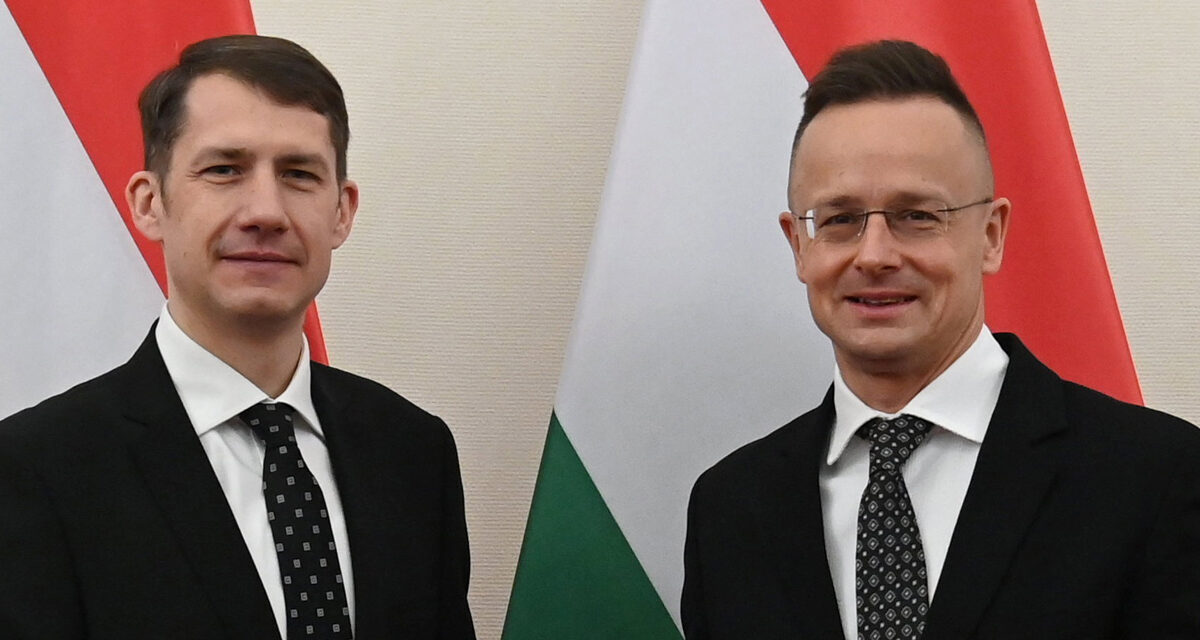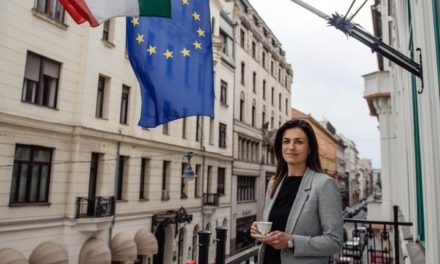Hungary and Serbia now have the best relationship in history.
This also proves that the Hungarian community beyond the border is a resource in the cooperation built with neighboring countries, said Minister of Foreign Affairs and Trade Péter Szijjártó on Wednesday in Budapest.
At the press conference following his meeting with Bálint Pásztor, the president of the Vojvodina Hungarian Association (VMSZ), the minister emphasized that national policy is at the heart of Hungarian foreign policy, which is why one of the leaders of the Hungarian communities across the border is always invited to ambassadorial meetings, as was the case this time.
First of all, he congratulated Bálint Pásztor on the excellent performance of his party in the Serbian elections in December, and stated that this is a huge achievement, especially in today's challenging period.
"Serbia, Vojvodina, VMSZ together provide evidence that the foreign policy strategy, which is based on building the best possible relationship with neighboring countries, is correct. Because the better the relationship with a neighboring country, the better the situation of the Hungarian national community living there."
- He told.
"And the Vojvodina Hungarians also proved that it is right to consider the Hungarian national community across the border as a resource in terms of the bilateral relations built with that country," he added.
Péter Szijjártó emphasized that when planning its foreign policy strategy, the government always gives priority to building good relations with neighboring states, and always stands up for the Hungarian national community living in these countries.
"Right now it seems like a trite phrase, but we worked a lot to be able to say this, and that's why we have to say every single time that Hungary and Serbia now have the best relationship and the best cooperation in history."
He then pointed out that this would not have been possible without the VMSZ, because it was from them that the proposal for the Hungarian government to launch a comprehensive economic development program in Vojvodina, within the framework of which more than 14,000 local companies have so far received HUF 80 billion in support, and thus 170 a total investment of HUF 1 billion was realized.
"This is good for everyone, good for Serbia, good for Vojvodina, good for Hungarians in Vojvodina, and good for us who live here in the motherland. Therefore, both the VMSZ, which represents the Hungarians of Vojvodina, and the Hungarian government are ready to continue the economic development program in Vojvodina."
The minister underlined that the cross-border infrastructure plays a big role in maintaining relations, the fact that it is possible to cross the border in as many places as possible, therefore, at the request of the VMSZ, the decision was made that the Röszke-Horgos 2 small border crossing point will change from limited to 24-hour opening hours.
"With this, we also help those Hungarians from Vojvodina and those from the mainland who do not want to go to the crowded highway crossing, or who are currently going to work or school"
he noted.
He also mentioned that the development of the border crossing in Hercegszántó will start soon with Interreg funds, in order to take the burden off the high-traffic crossings.
Finally, he emphasized that during the Hungarian presidency of the European Union, the government will focus on accelerating the expansion and the fight against illegal immigration.
"Hungary has always been on Serbia's side when it comes to the enlargement of the European Union, and we would like Serbia to be a member of the European Union as soon as possible, this is also in the interest of the Vojvodina Hungarians"
he announced.
He also expressed his hope that as many Hungarians from Vojvodina with dual citizenship as possible will participate in the European Parliament elections.
"And with regard to the action against illegal migration, I would like to express my appreciation to the VMSZ, the president of the VMSZ, since without their steadfastness, the exemplary strict police action on the Serbian side of the border, which led to a significant improvement in living conditions and security has also improved significantly on the Vojvodina side of the border"
- He told.
MTI
Featured image: Minister of Foreign Affairs and Trade Péter Szijjártó receives Bálint Pásztor, president of the Vojvodina Hungarian Association (VMSZ) at the Ministry of Foreign Affairs and Trade on March 6, 2024. MTI/Zoltán Máthé












